
63 minute read
Clubs & Societies
Clubs and soCieties
Astronomy Society
This year four students continued to prepare for their GCSE in Astronomy in the summer, with regular discussions about the course, and topical events in Astronomy, every week.
The highlight of the year was certainly the transit of the planet Mercury across the face of the Sun which took place in November. We were fortunate enough, for once, to experience beautiful weather and Beekeeping Club For the Romans beekeeping was an important activity. Although bees were kept in large numbers on the estates throughout Roman Italy, such was the demand that honey and wax were imported from other parts of the Empire such as Spain and Corsica. Early agricultural writings including Varro’s De re rustica, and Virgil’s Fourth Georgic provide an insight into beekeeping during this period. Virgil noted: “For bees put no trust in the sky when storms come up with an east wind, and seldom venture far away from their hives when downpours impend: instead, they draw the water off and stick close to their “city walls” where any flights they take are brief; as the wind blows and the rain falls they steady themselves through turbulence by taking with them little stones (as frail boats, faced with violence of gales and tides, take ballast on), and hold their given course along the clouds, balanced, and balancing.” The great Sherlock Holmes was also fascinated with bees. When he retired from his London work he went to Sussex. “My house is lonely. I, my old housekeeper, and my bees have the estate all to ourselves” (The Adventure of the Lion’s Mane). Holmes also wrote the legendary “Practical Handbook of Bee Culture”, a book not only packed with wonderful bee-keeping lore but were able to take some good pictures of the event, especially since the next transit of Mercury won’t take place until 2032!
Thanks to Joe, Ethan, Adam and William for an enjoyable few years of Astronomy, and best of luck for the future, although I’m sure Ethan you already know what’s in store for you….

Mr Simm also one which featured as a decoy for government secrets in the famous story ‘His Last Bow’. For Holmes there was a close connection between his work as a consulting detective and beekeeping:
1. Patience
Searching for details, evidence and checking facts are necessary during an investigation, and one needs a lot of patience to do them. You also have to be patient to observe bees and care for them.
2. Taking responsibility
An investigation may save lives, and a beekeeper is also responsible for the well-being of his/her bees.
3. Preparedness
A good detective tries to collect as much data as he/ she can in order to make his/her work easier. You cannot start keeping bees without knowing at least the basics.
4. Perseverance
No activity can be effective without it. If it is given, the detective surely solves the case, and the beekeeper can collect the precious honey.
The KES Beekeeping Club is proud to follow in such company. Since 2012, Mr Robinson and visiting apiarist, Mr Norris, have guided the club through many successful honey harvests. In August 2019 we received our first rescue colony and during March 2020, we recorded in our log book our one hundredth member (once a member of Bee Club, always a member of Bee Club). In the early spring of 2021 the hives will be sited in the refurbished Eco Garden.
KES bees are honeybees. There is just one species of honeybee in the UK, identified by its slim, sandy thorax and black abdomen with goldenamber bands. Honeybees have been domesticated for centuries and it is rare to find a truly wild colony. Our honeybees now mostly live in hives of up to 30,000 individuals, and are commonly found feeding on open flowers that they can easily reach with their short tongues. Southampton Common and the KES Eco Garden provide great foraging. Keep your eyes peeled around willows, orchard trees, oil-seed rape, raspberry flowers and other trees, herbs and shrubs.
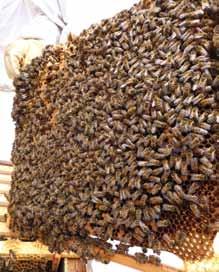
We do have some wild bees too, often known as dumbledores. Tree bumblebees, easily identified by their ginger thorax, black abdomen and white tail, are one of our most common species. They are also the species most likely to colonise nest boxes, and are found in habitats ranging from woodland to gardens. Some of their favourite flowers include rhododendrons, brambles and comfrey. There are also the red tails and the white tails. Red-tailed bumblebees are jet black with a bright red or red-orange tail, while males have a yellow-haired head and collar, and a weak yellow midriff-band. These bees do well in a variety of habits including woodland, urban sites, gardens and wildflower-rich grassland, in fact anywhere they can find thistles, bird’s-foot trefoil, buddleia and the rest of their favourite flowers. White-tailed bumblebees have a bright yellow collar, a yellow abdomen band and a bright white tail. They can be found almost anywhere, feeding on flowers ranging from thistles and buddleia to brambles and scabious.
September is a good time to come along to Bee Club if you are firing up your interest. This is the time of year that we harvest the honey. We borrow the whirling cylinder from the local association and set it up in the kitchens at school. Pots of honey are available to all members. The very first pot always goes to the Head. Honey harvesting takes place on the first Friday of the autumn term at four o’clock. Sign the Bee Club book in CL2 to reserve your chance to spin the frames and allow centrifugal force to draw out the honey.
Freddie Bestford, Rebecca Chamberlain and Charles Salino


I write with humbled gratitude to thank you for hosting your ball in January. I, personally, found it to be the highlight of the social calendar. Filled with scandal, rumours and merriment, the event left me craving the salacious wonder that our beloved society provides. Though quite separate, the masqued element of the ball recalled in me memories of the ‘Dangerous Liaisons’ meeting to introduce our new friends to the society at the start of the season. Tell me, were you, perchance, inspired by the candid confessions of our peers on that occasion as to their true feelings about one another when arranging the table settings for your ball? As to the latter, I particularly enjoyed the story-writing group enterprise in which we emulated the great competition between Mary Godwin, Polidori, Shelley and Byron himself. Perhaps the works we produced will rival Frankenstein and The Vampyre! Though my team was inarguably robbed, I must extol both the ambition and result of the affair. It is with most profound concern that I ask for news regarding the recoveries of dearest Percy Shelley and Trelawney. The savage sword fight between the two has permanently distressed me and I fear I will not sleep peacefully until their quarrel is resolved. I longingly await your response, Yours most sincere, Mrs Pierto Segati
Aston Hall,Yorkshire, 13th June 1819
My dear Mrs Segati,

Thank you most kindly for your recent missive regarding my spring Masquerade; I too revelled in the success and joy of the occasion and thank you most graciously for your assistance in procuring the most lavish of decorations and inviting the most esteemed friends. It warms my heart to receive word from dear associates such as yourself in these troubled times, and it was most pleasurable to see you in the recent Byronic University Challenge last month. Although, of course, I am proud that my own team (representing Keble college, Oxford) prevailed, the participation of both your own and Mr Shelley’s teams (representing Newnham college, Cambridge and University college, Oxford respectively) was most admirable. I was quite awed by the modern advancements which allowed us to hold this merry meeting. I see that members of all teams must have been paying rapt attention to our patron’s fascinating talk for the Byronic Book Club on ‘In Byron’s Wake’ by Miranda Seymour. I have yet to recover from the scandal of the scathing remarks made by the man himself about the poor Lady Byron! As we move on into new realms of life, I shall cherish the fond memories I possess of our time with Lord Byron’s society, and I look forward to welcoming a new generation of presidents and devotees to carry it forth. I am perhaps even more excited by the prospect of the Celebratory Regency Ball set to honour the occasion of the society entering its 21st year of existence! All members of the society from past and present have been invited, and I look eagerly forward to dancing, dining and partaking in other revelries with notable personages from all folds of life and society. I hope to see you at this most joyous of occasions!
With kindest regards,
Lady Wedderburn-Webster
Eleanor Yonge and Eleanor Dunlop Byron Society Presidents 2019-2020

Ceramics Club
Ceramics Club has remained popular and was being very well attended on Wednesday evenings, until the lockdown unfortunately curtailed our activities. Students from the Upper School and Sixth Form have really enjoyed trying their hand at using the pottery wheels, and have made impressive progress in mastering this difficult skill. We were regularly firing the students’ claywork in the kiln, using the lovely range of glazes bought with last year’s generous PTA funding. Some students have also used their ventures into claywork to evidence the skills assessment section of their Duke of Edinburgh Awards.
Mrs Sheridan
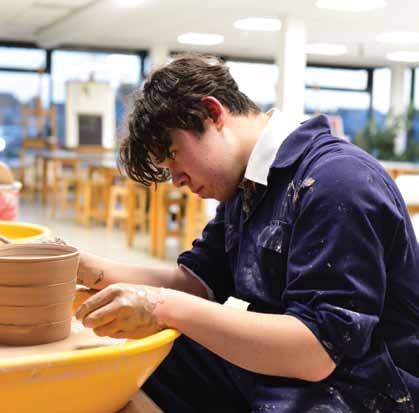
Character Design Club
There has been a very enjoyable and creative atmosphere in Character Design Club this year.
The students began the year by designing their own watercolour ‘Patronus’ creatures, inspired by J.K. Rowling’s Harry Potter. For their second project, students learnt the monoprinting technique and
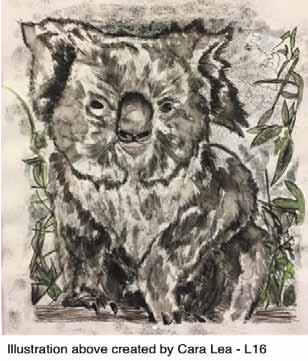
added watercolour to create effective illustrations. The aim of this project was to create awareness of the animals that were in danger due to the Australian bushfires that began in June 2019 and continued burning until the end of March 2020.
Miss McGinn
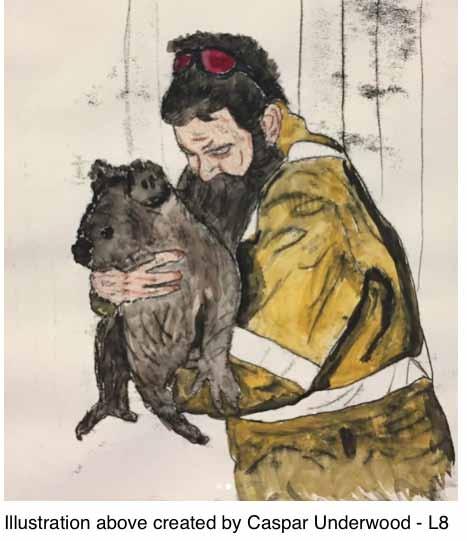
Charities Commisson
Charitable activities have remained a key element of school life and this year has been particularly busy for members of the Charities Commission. The First Years, in their colourful and imaginative fancy dress outfits, raised over £1480 for the local Toy Appeal in October 2019 with their sponsored run around the perimeter of the Sports Hall. Lower School Charities Commission took the lead on Children in Need this year and raised over £300. Other events in the autumn term included the Summer Camp disco, sales of doughnuts, advent calendars and candy canes, a whole school Christmas Jumper Day and the annual Christmas stalls. The termly non-uniform day was in aid of Disability Challengers and raised £1,114. Finally, over £1,285 will be donated to Fairways Foundation - a charity to support young people in need - following a retiring collection at the annual Carol Service at Romsey Abbey. The total raised throughout the term exceeded £5,000.
The spring term kicked off with the Summer Camp team’s ever popular Battle of the Bands competition which raised £1,981.26. In February, the Charities Commission arranged a heart shaped lolly and rose delivery service for the week prior to their bake sale on Valentine’s Day. The amount of cake produced was staggering and over £900 was raised from these two events alone. Funds from the spring term’s nonuniform day was donated to the Australian bushfire relief charities. Leading up to lockdown, the Commission sold Easter eggs and Cadbury’s creme eggs and all the money raised went to the Southampton Coronavirus Response Fund.
During lockdown, members of the Charities Commission remained active. The Lower Sixth put together an awareness video to discuss charities that are close to their heart and encouraged students to be involved in the Great Charity Bake Off over the May half-term. All money raised went towards Water Aid. An on-line Quarantine Quiz also generated over £160 for the Society of St James whilst the proceeds from Mad Hair Day, held in June, went to Maggie’s Cancer Care Charity The Commission is constantly trying to think of new ways to encourage everyone to remember those in need whilst socially distancing.
Additionally this year the Commission have designed their own school hoodies and eco-friendly coffee cups which will be sold for charity once students return to school.
Miss McGinn
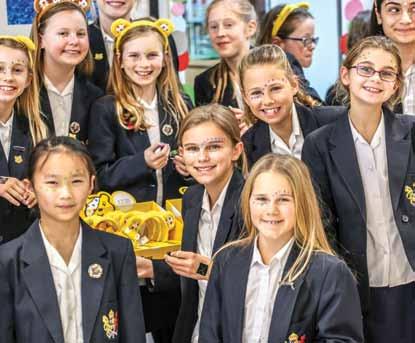
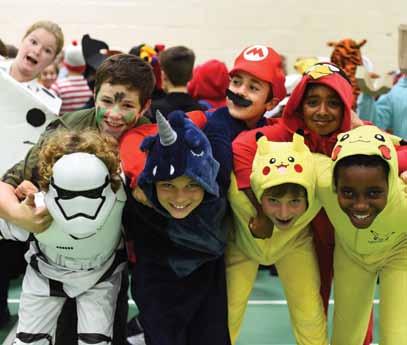
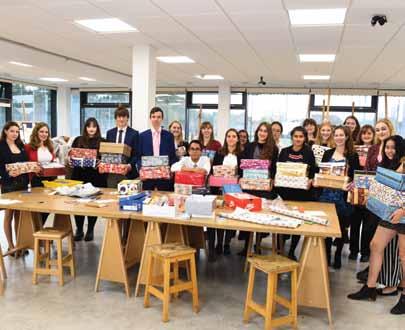
Chess Club
This year, Chess Club has been meeting once a week on Thursdays from 1-1.30 pm. Pupils from all year groups have been along to play short games, try out new moves and just chat to like-minded people.
Lockdown has seen us branching out into bullet, blitz and long games via a website that enables beginners through to advanced players to play against opponents The Christian Union began the year with individual students leading the Tuesday lunchtime meeting with presentations of particular meaning to them. This provided an excellent backdrop for the group to consider looking at the book of Acts in more detail. Using some video lessons and the Bible Project resources, a lot was gained from looking at the work of the Holy Spirit in the lives of individuals and the Church. As Lent approached, a new series was embarked upon. A study of joy and sorrow, ease and difficulty, of similar strength. It also provides tips and hints on how to improve, so no doubt some people will return to the club with new weapons in their armoury.
Christian Union
Dr Dean comfort and hardship was made using an excellent Lent resource book based on the writings and life of author C S Lewis. We didn’t quite finish it before the lockdown commenced…
The CU welcomes everyone to meetings on a Tuesday lunchtime where we look at aspects of the Christian life, discuss issues and relate them to God and how he is revealed in the Bible.
Mr Robinson
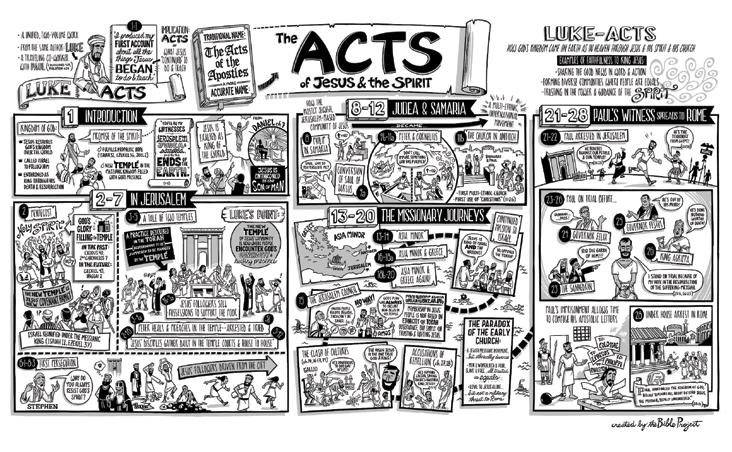
Classical Society
It has been an exciting and eventful year at Classical Society with a range of fascinating talks as well as a multitude of quizzes. Unfortunately, due to the lockdown, we have had to run the club via Zoom. However, this allowed us to extend the society over the holidays, providing a great source of entertainment, while we were all stuck at home, with many classical Zoom kahoots and quizzes.
This year we have had amazing talks from our members ranging from one about different ancient African writing systems (by Hannah Smith) to a guide to Norse Mythology (by Samantha MacNoughton) as well as an intriguing presentation exploring the Pagan origins of Easter. We have also been fortunate enough to have visits from some external speakers, including Cookery Club meets on Mondays after school when pupils have the opportunity to learn new cooking skills or polish the ones that they have. Mr Sheppard has made it his mission to impart to this year’s intake the importance of the tidy workspace. First Years have learned knife skills and the best ways to chop, slice or dice an onion. This came in handy when making spaghetti bolognaise and chicken curry. Fourth an interesting talk about the proto-Indo-European language by OE, Curtis Crowley.
One of the highlights this year, in addition to our annual Big Classics Christmas Quiz, was the Classical Lockdown Quiz held remotely. The society also held several debates this year, discussing the downfall of Ancient Greece and Rome and the impact of the rise of Christianity which brought up many compelling points and original ideas. Over the next couple of months we shall continue running the society virtually and learning about more obscure ancient civilisations and their mythology.
Cookery Club
Sophia Skenderis

Years were adventurous enough to make Thai green chicken curry as well as learning the basics of the ‘rubbing in’ method in baking for some delicious fruit crumbles. Tasty dishes were created by our pupils throughout the course and we look forward to next year and our emerging chefs.
Mrs Searles
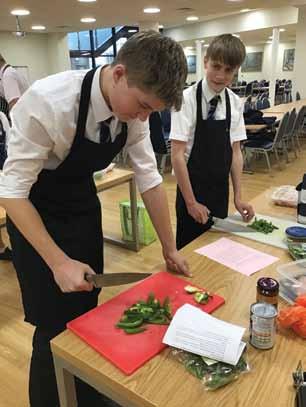
Debating & Public Speaking Society
Senior Debating
Across this academic year there have been many exciting debates on a wide range of topics including the impact of artificial intelligence on human life and the extent to which music that glorifies violence should be banned. The Senior Debating Team tackled challenging motions such as these with determination and enthusiasm, honing their public speaking skills and delivering well-researched speeches with confidence and flair.
Earlier this year, the team were afforded the opportunity to compete in the Debating Matters Southampton Championship against seven other schools. Our students contested three different motions, winning all of their debates. This meant that they reached the final, where Alfie and Charlie performed valiantly, and with stamina and skill, in what was a hard-fought and gruelling contest, debating the motion ‘Western museums should repatriate cultural artefacts’. In the end, they came up just short. Reaching the final was an outstanding achievement and gives all of our debaters something exciting to build on for the future. Across the competition all of our debaters – Alfie, Charlie, Leo, Tom, Luke and Madeleine –were extremely well-prepared for their debates, and they delivered eloquent, succinct, intellectually-robust and convincing arguments, also showcasing an ability to think both laterally and on their feet. The competition was an excellent opportunity to meet debating teams from other schools; we look forward to arranging debates with them next academic year!
Miss Goodsell and Mr Reekes
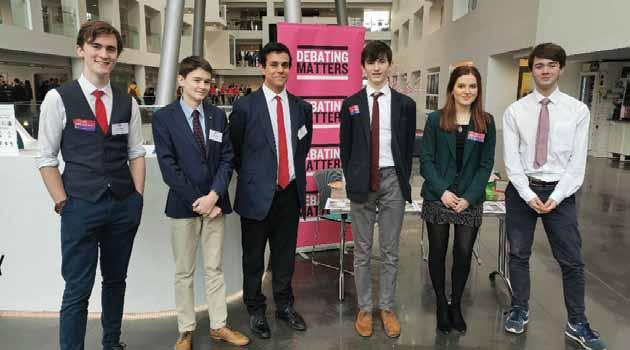
Junior Debating
The Junior Debating Team has had a very successful year, student led by Beck Chamberlain, Elsa Buerk and me. Together we created current, engaging and challenging motions for the Junior Debating Team, which the members responded to with enthusiasm and energy.
The lively debates and intriguing, out of the box points made by the junior debaters are always fascinating to hear. It has been very rewarding watching them improve from week to week. The club members are always creative and well-informed making for amazing, fast-paced tennis debates and it has been an absolute pleasure to work with them. Unfortunately, in the circumstances, our club was unable to meet in person during the summer term, but the members rose to the occasion admirably and we have had some very successful online debates including our version of Model UN via Zoom. The competition explored the worldwide challenge to transition to affordable and clean energy from the perspective of different countries. Congratulations to Max and Amelia who were awarded the £1 billion prize for their clean energy proposal.
Next year we hope to continue having more thought provoking and exciting debates and I very much look forward to when our club will meet again.
Sophia Skenderis
Digital Leaders
We have had a great year at Digital Leaders despite it being truncated by Covid-19.
We kicked off the new academic year assisting with a Digital Leaders conference in October at Stroud School. Designed to appeal to younger students, from state and independent primary schools across Hampshire and Wiltshire, the conference allowed students to experience a range of new technology with a number of technology companies represented on the day. A series of well-received workshops included green screen filming and ride programming (with the support of Paultons Park) were the highlight. King Edward’s pupils helped to facilitate cross-school groups in undertaking digitally-focused challenges and problem solving activities.
Our next big event was the Safer Internet Day aimed at Third Years and co-hosted with the E-Safety group. In the run-up to the event, we met with teachers from other schools who were designing their own digital safety events and who were keen to discuss our plans. The event, held in February, was both a success and great fun. There were lots of stands hosting different internet safety activities and presentations with helpers handing out safety tips together with lots of sweets! Some of us also had to wear some rather fetching e-safety related costumes!
Will and Daniel from the Upper Sixth, supported by Ben and Sava, gave a few assemblies on Staying Safe online, robotics and viruses, which were well received Diversity Society started the year by celebrating World Mental Health Day. The school was awash with yellow, with special assemblies taking place and money raised for mental health charities via a bake sale and ribbon donations. Next up we marked Black History Month in October and were joined by cardboard cutouts of Barack and Michelle Obama, along with free Afro-Caribbean cuisine and music in the Atrium. For International Men’s Day the focus was on positive male role models, with a very powerful assembly led by the Heads of School and others posing with moustaches for photo ops. Finally, International Women’s Day was marked by members of Diversity Society and members of staff joining forces for an assembly in the morning, before raising money for women’s charities with a purple sweets sale. Sadly, further planned events had to be cancelled due to the lockdown, but we are hoping for a full calendar of events next year. by different year groups. Sava also led a team in trying to make a bus app to give information about the school’s bus transportation system.
In addition, throughout the year, we have been meeting every Friday to discuss and work on projects such as raspberry pi computers, creating apps and coding robots. Business as usual included regularly assisting teachers and students with technological difficulties including fortnightly meetings with First Year students.
Despite the lockdown, we continued with Digital Leaders meetings via Zoom. It was, of course, a great shame that we didn’t get to undertake any more events or activities in school but this does mean that
Max Bouras
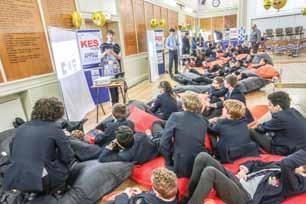
Diversity Society
we have even more ideas for next year’s programme!
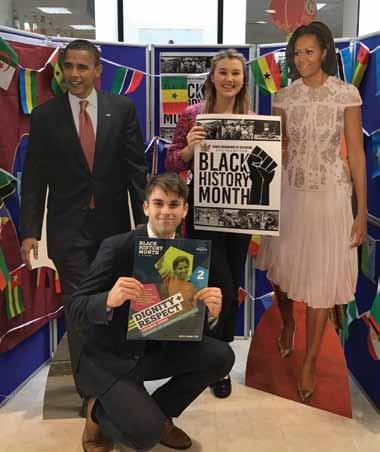
Duke of Edinburgh’s Award
Participation in the Duke of Edinburgh’s award at all levels continues to thrive. Prior to the lockdown in March, expeditions were progressing as normal with two October half-term expeditions (one to Dartmoor and one to the Lake District) in which all the members of the teams performed well.
Due to the pandemic, we now have a revised programme of expeditions and it is hoped that we will be permitted to run them from the October halfterm in 2020. If that is not possible, we will revise once again, but our
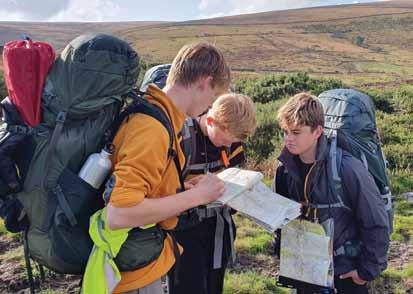
intent is to provide all participants with the ability to complete their awards when safely achievable. In the meantime, participants are encouraged to continue with their Volunteering, Physical and
Skills sections in a safe manner, but keeping good evidence of how they are managing this.
Advice on continuing with your Award is available at dofe.org/dofewithadifference.
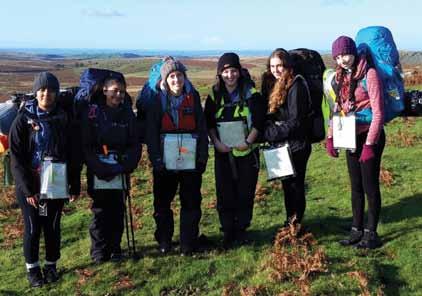

Mr Barnes
E-Safety Group
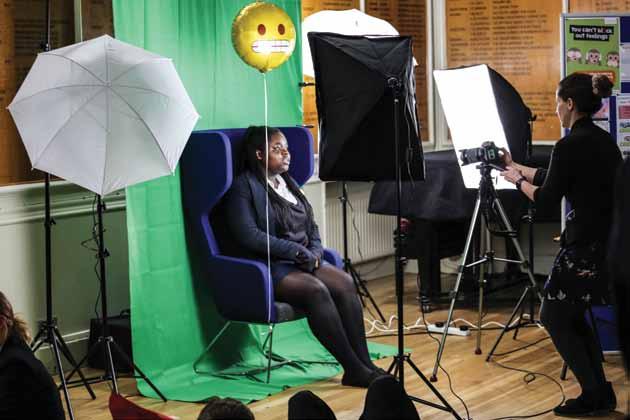
At KES we have an E-safety team that is made up of Mr Blow, Mrs Penn and two members from each year group. We meet every half-term and discuss any issues that we have heard about regarding online safety, and try to create solutions that we can share with the rest of the school to help create a fun and safe online environment for everyone.
For Safer Internet Day we used the School Hall all day to deliver a range of activities to raise awareness and teach students about internet safety and online activity. The whole Third Year and members of Stroud School had a lesson with us and all the other year groups could come in during break and lunch. We set up four small talks in the style of a “Ted” talk to explain an area of internet safety that we felt was most useful - from anonymous apps to digital detoxing. Spaced around the talks we had lots of different activities and information areas. These included a KES average screen time board, Mario Kart, sphero racing and a video pledge where pupils could say what they wanted to do to help make the internet a safer place. The digital leaders also set up an information desk to answer any questions that students had regarding iPads.
As an extension of the Safer Internet Day our group also ran a First Year extended studies session. We did the four talks to inform some of the younger students about how to set privacy settings and specific apps that they will find useful during their time at KES. Each session lasted 20 minutes and included fun activities that were delivered by members of our group.
Members of the E-safety group: Alex Georgiou, Harry Bristowe, Kate Dunn, Claudia Hargreaves, Benjy Groves, Darcy Randle, Ellie Orton, Devansh Bhachech, Harry Stembridge and Emilia Walker.
Harry Bristowe
Economics Society
Like so much else, Economics Society came to a rather abrupt end this year with the school being closed and the country going into lockdown. Talks that fell victim to the virus included the much-anticipated return of Caroline Noakes MP, who had kindly agreed to address a joint meeting of the Economics and Politics societies. Nevertheless, the pandemic and the government’s actions to address it have given many new avenues of economic enquiry to be explored in coming years, and the school closure has led to Economics Society going online for the first time.
In the report below, Charles Thomas describes some of this year’s highlights. The Society was very ably led once again, with Charles, Kira Morton, and Oliver Showell ensuring its continued success with a range of relevant talks and quality refreshments.
Charles writes, “ Economics Society had another successful year with attendance being one of the highest in the school. We had a variety of talks delivered by both students and experts that were highly engaging, thought-provoking and appreciated by a range of students. The year kicked off with a talk delivered by Oliver Showell and me entitled “Are we due another market crash?” It covered the history of crashes, from the Tulip Mania of 1636 to the financial crisis of 2008, as well as the root sources of market collapses. We then had Kai England and
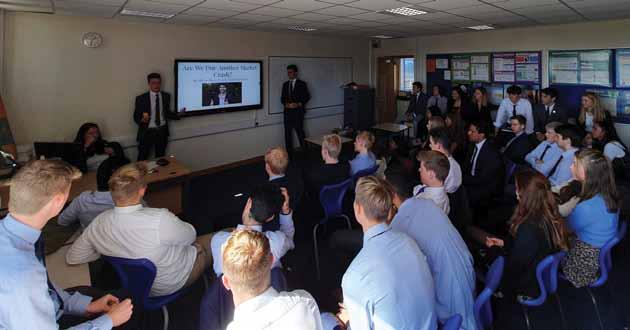
Matt Duke discussing the future implications of a cashless society, identifying an array of problems, such as access for low-income households, that future societies will have to solve.
We were grateful to have Adam Mills as our first external speaker of the year with a talk on his extensive experience working on national bus privatisation during the late 1980s. Upper Sixth student Will Tall presented his thoughts on the awardwinning book “Doughnut Economics”, an outline of the sustainable visual growth model developed by Kate Raworth before our final talk of the year, presented by Professor Mishra, Head of Banking and Finance, at Southampton University. His talk was very interesting and introduced the idea that much of economic decision-making is based on memory. The talk had several conclusions but the most profound being: if the economy is a collection of rational individuals, and life experience has a great effect on one’s decisions, then the fundamentals of economics are based on the memory of people.
Many thanks to all our speakers and all those who turned up to listen, debate, and ask questions. We look forward to a packed programme next year.
Mr Culver
Eureka Club
In Eureka Club this year we have covered many topics aiming to think about new and interesting ways to look at things. Our first meeting of the year covered the presentation of Satan in the Bible and considered other interpretations of what was written. We also looked at Greek gods, and how shocking most of them are to the modern society’s point of view, along with many other topics such as ancient aliens and the secret space programme. Geography Society continued to attract the subject enthusiasts and also those just after a piece of free cake! Henry Gwilliam and Millie Parsons led from the front, delivering the first lecture of the year in full Antarctic gear as they discussed Captain Scott’s ill-fated expedition of 1912. Other highlights included an exceptional talk by Tim Ward assessing life in the Sahel, Miss Downing discussing living abroad, Dr Roe The club built up its numbers until we regularly had twelve dedicated Lower School members who aired views with insight and listened to others with respect. In time-honoured fashion, the one holding the coconut has the floor. In the immortal words of Cicero, “It is better to say nothing than to have nothing to say”. We certainly had plenty to say. B is the week, Wednesday Jamie McManus
Geography Society
is the day, 1.30pm the time and CL2 the room.
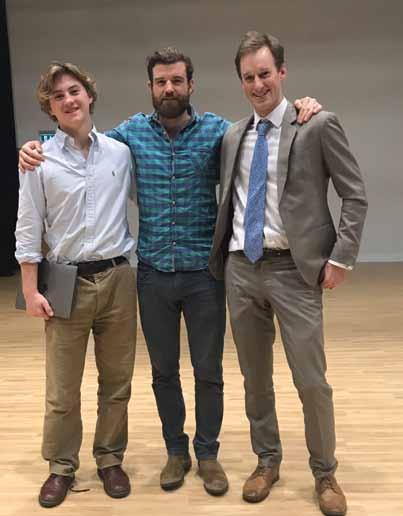
describing hostage experiences in West Africa and Dr Simon Boxall talking about his work on tsunamis. We were also delighted to welcome back explorer, Charlie Walker, as he recounted tales from his epic 43,000 mile cycle around the world in an evening lecture. Society events concluded with the inaugural and successful Zoom Geography Quiz for OE geographers.
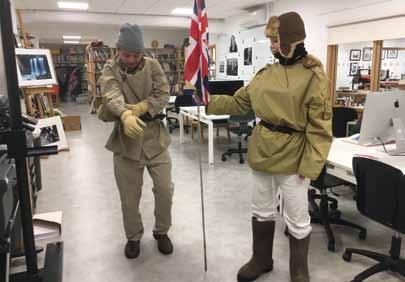
Mr Brown
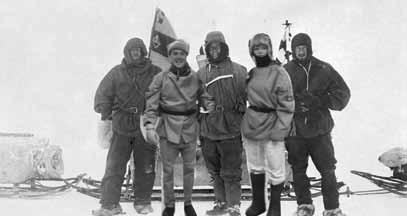
German Club
German enthusiasts have met once a week to brush up on key vocabulary through competitions and games. Students from First to Third Year have attended, and all have grown in confidence and ability. Greek Club has seen good progress being made by its intrepid members. The club is working towards a GCSE in Classical Greek, for those who want to do that kind of thing, or simply towards a better knowledge of the language and culture of the Ancient Greeks. This includes not just the Athenians and Spartans, but any Green Team was pleased to welcome new members to its rank this year. With some fresh insight and new enthusiasm, some of our Sixth Form students delivered some fantastic section assemblies to the younger students in the school community. The Christmas stalls were a success and we hope that this is something we can offer again in the future. A small We were able to continue the fun using Zoom during lockdown, when students themselves created cultural
Mrs Hall
Greek Club
quizzes for each other. of the other city states of Ancient Greece from the time of Homer onwards, whether the subject is the mystifying way the Locrians made laws or the fables of Aesop.
Green Team
Mr Halls victory was the removal of the weekly “Blue Sheet” which tutors would receive each Friday with notices; this now goes out in a digital format. We continue to hope that the school becomes more sustainable in every aspect and takes steps to achieve this aim.
Mrs Brown
Greenpower
Along with the rest of our sporting seasons the 2019/20 Greenpower racing calendar was understandably cut short with the planned practice days and qualifying heats cancelled due to the COVID-19 pandemic. The good news was that before KES moved to remote teaching in March the Greenpower team did get a chance to race in the final event of the 2018/19 season - The International Kit Car Finals at Silverstone. Changeable weather from cold and clear skies to heavy rain storms made for a challenging day’s racing for the KES team. They had enjoyed an excellent 2019 season that culminated in an outstanding result, finishing in 19th place in the kit car category. The team’s performance was flawless throughout the qualifying race and the main Under the stewardship of Finn McCullagh and Edmund Bissett, the Senior Historical Society has had another successful year, with a series of thought-provoking lunchtime talks drawing large and appreciative audiences and engendering vigorous debate. The Society enjoyed a broad range of topics; Nixon’s visit to China in 1972, the Cultural Revolution, Rasputin and the Russian Revolution, Pablo Escobar, the Crimean War, the Suez Crisis, the Jonestown Massacre and the historical and musical origins of Jazz from Mr Parker. It is only right that this report finishes with a formal note of appreciation for the many years of service to
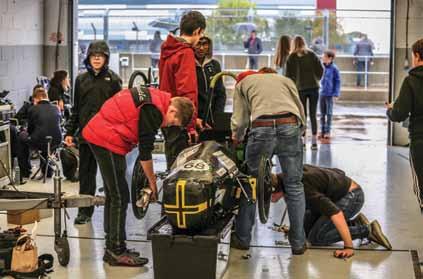
event. Results from the race can be found at: http://www.bbk-online.net/gpt/event205.htm Despite the inability to access the workshop and the cars, the team were not idle during the lockdown months; continuing to hold weekly virtual Zoom meetings. They have productively used the time to brush up on their 3D CAD (computer aided design) skills, using the SolidEdge and Fusion 360 software, as well as working on the graphics and an all-important name for the second race car. Many mathematical models have been calculated and tested to try and optimise the aero dynamics, rolling resistance and electrical efficiency of the cars so the team will be ready as soon as they can get back to the workshop.
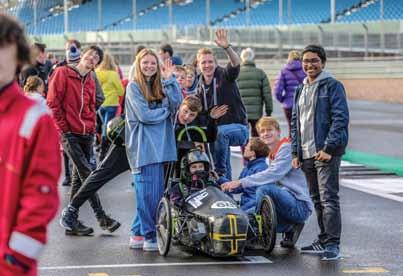
Historical Society
Mr Blow the Society on the part of Mr Kevin Coundley. Kevin joined the KES History department in 1989, and for many of the 31 years until his retirement this year, ran the Senior Historical Society in a well-considered and admirably enthusiastic manner, believing passionately in the importance of serious academic discussion in KES life. The Senior Historical Society is very much part of his hugely positive legacy to the school, and it is thus appropriate that from September 2020 it will be renamed ‘The Coundley Historical Society’. Mr Diver
Interface
Interface is a weekly gathering of First, Second and Third Year students who consider significant subjects while playing games and tackling challenges. Unfortunately, this year’s activities were cut short by the coronavirus pandemic but there was still time to consider what lessons we could learn from such events.
Plenty of games involving chance were played, as well as some that tested even the best memories and pushed artistic ability to its limit. We met Simon Journalism Club Newly formed this academic year, the Journalism Club focused on King Edward’s link with the America’s Cup. Upper Sixth students Edmund Bissett and Linus Etchingham attended the first boat launch in Portsmouth. As reported by Bissett, “Armed with camera and notepad, we arrived on Portsmouth’s windy seafront ready to cover INEOS Team UK’s America’s Cup initial boat launch. Surrounded by professional reporters and eager spies from the opposition, the race was on to get the details.” Bissett’s write-up of Britannia’s launch, where she got “her first taste of water, or rather champagne”, was included in the official programme for Ben Ainslie’s talk at KES, whilst Etchingham’s research into the two charities the talk funded, Prostate Cancer UK and the 1851 Trust, was included in the souvenir booklet. Meanwhile, Lower Sixth students Elizabeth Field and Madeleine Harris, along with Third Year student Rebecca Vaughan, were able to hone their interview skills through an exclusive conversation with Ben Ainslie himself. These students had prepared questions ahead of time, but they also were able to demonstrate their ability to adjust planned queries as necessary and spontaneously follow up on Ainslie’s responses. The students were thrilled to be able to participate as professionals and be treated as such. Etchingham remarked that nobody could tell that he wasn’t a “real” reporter. He found himself standing next to a BBC reporter in Portsmouth and realised that, as a student, he was just one of the many members of the press present. Peter fishing and remembered Lot’s wife’s unwise decision. One week we encountered monster spiders and on the 14th February true love was in the air, not only between Isaac and Rebekah but also the ultimate display recorded in John 3:16.
Students with a viewpoint to express, or those who like pondering new ideas, are very welcome to
Mr Singleton

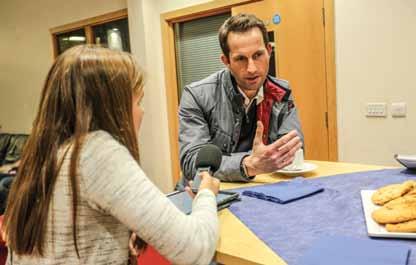
attend.
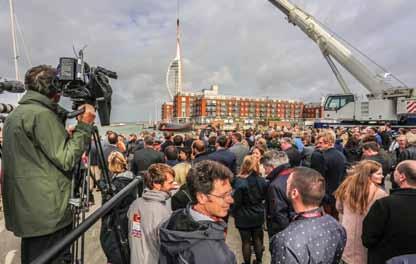
Literary Society
It has been a great honour for me to take on the mantle of this august society from Dr Schofield. The Christmas term kicked off with the Booker Prize Challenge, an inspired initiative which, it seems to me, is virtually unique to KES. Members of the English Department would each choose a novel from the Booker Prize shortlist to read, and then run a discussion session with those students who had managed to read it. Many thanks to Miss Gunton, who ran a session on ‘Quichotte’ by Salman Rushdie; Ms Rawson (‘The Testaments’ by Margaret Atwood); Mrs Hardwick (‘Ducks, Newburyport’ by Lucy Ellmann); and Dr Schofield (’10 Minutes 38 Seconds in This Strange World’ by Elif Shafak). I ran a session myself on ‘An Orchestra of Minorities’ by Chigozie Obioma. Even from a cursory glance at the list of titles and names on this list, one can surmise that it is an extremely eclectic and at times even esoteric miscellany. It is safe to say that several of the novels were not to the tastes either of the students or the teachers! Some of them, in fact, were universally panned by the KES critics! However, it is undeniable that the exercise of exposing oneself to such a wide array of genres, writing styles, structures, themes, contexts and so on, is both enriching and edifying. Huge congratulations to Eleanor Dunlop for reading the entire shortlist: a stunning achievement!
Also in the Christmas term, a debate was held on the question: ‘How successful is Briony Tallis in achieving her “atonement”?’ (The novel ‘Atonement’, by Ian McEwan, is part of the ‘Crime’ Specification which KES students study as part of the AQA English Literature A Level). The debate was entirely student-led: both sides put forward their cases powerfully and with first-class knowledge of the text; the occasion became increasingly loud and impassioned! Ultimately, however, the nuanced and evaluative ideas that emerged will have proven most valuable for the students’ further critical exploration of the novel, as well as other works in McEwan’s canon and in the Crime genre in general. Absorbing and challenging discussions were also held on ‘The
Lunar Society
Following on from its successful reestablishment last year, Lunar Society has continued to enjoy a huge variety of scientific talks and discussions. Featuring such titles as “How to move faster than light”, “The future of human evolution”, and “Supersonic Shenanigans”, the society served as a fortnightly journey into the science behind our strange and wonderful world. The topics of student talks ranged from aerodynamics to black holes to climate change, allowing all of us to expand our knowledge and challenge our assumptions. Wasteland’ by TS Eliot, ‘To His Coy Mistress’ by Andrew Marvell, ‘The Ruined Maid’ by Thomas Hardy, and ‘The Garden of Love’ by William Blake, all of which are poems from the AQA A Level specification which KES students do not study thus stretching their knowledge and enhancing their appreciation of texts beyond their own syllabus, two of the overriding aims of the Literature Society.
The affliction of COVID-19 scuppered any plans for face-to-face lectures; it was especially disappointing that we were not treated to Mr Niall Mason’s epic Dickens talk. Lit Soc relocated to Zoom for the summer term and has gone from strength to strength. During quarantine, those of us of an artistic bent have been blessed with an embarrassment of riches to cherish on a variety of online platforms: plays, ballets, operas, television dramas based on classic novels, podcasts and more. The KES Lit Soc Google Classroom page has been a veritable hive of activity, with people posting about a marvellous diversity of cultural presentations that have enthused them. We have had illuminating and in-depth critical discussions of the National Theatre production of ‘Twelfth Night’ starring Tamsin Greig and the RSC production of ‘The Tempest’ starring Simon Russell Beale. The final Lit Soc meeting of the summer half-term was devoted to an extremely impressive talk by Eleanor Yonge and Grace McNicholas on Sylvia Plath: the influences of her personal life on both ‘The Bell Jar’ and various seminal poems, and a comparison of their styles and content. The resourcefulness and academic aspiration these two girls demonstrated set the benchmark for future student-led Lit Soc presentations.
Finally, I would like to thank Mr Chandrachud, who has inaugurated a Middle School Lit Soc, thus helping enormously in spreading a promotion of the love of literature; the importance of imagination, sensitivity and discernment; and cultural curiosity throughout the school.
Mr Reekes
an excellent demonstration of the enthusiasm for scientific subjects cherished amongst our members. We were also lucky enough to host a geophysicist working for BP, who gave an insight into the geology of the Earth and how companies can apply the science to their operations. Lunar Society more than lived up to its reputation of challenging our keen A Level scientists’ minds this year. As president of the society, I would like to extend a huge congratulations to all the students who gave talks and contributed to discussions.
MedSoc
The past year has seen a wealth of different medical professionals address the MedSoc members. From research-based careers to hands-on sessions, every talk further illustrated the variety in a medical career, never failing to captivate the new batch of aspiring medics.
The year began with a talk from OEs Megan Dunlop and Claudia Tam who introduced the aspiring Lower Sixth members to the gruelling process of applying to medical school and to what medical school entails. Lower Sixth members learnt how medicine was taught in different schools, whilst Upper Sixth members were able to gain valuable interview tips for their looming interviews. The rest of the year was equally as inspiring and listening to speakers from diverse medical backgrounds continued to stimulate members.
Whilst we saw some familiar faces from previous years, like paediatric radiology consultant Dr Fairhurst and paediatric and neonatal surgeon Dr Wheeler, both of whom delivered fascinating talks, the past terms have also seen some new speakers give a fresh perspective on medicine. Some of the most notable include Dr Waddington and Dr Ashfield.
Dr Waddington, who is an A&E consultant and also an OE, gave an in-depth talk about the demanding career of working in a hospital’s Emergency Department. Listeners were given an insight into the complexity of trauma care and the vast number of medical specialists involved in the care of a critically ill patient. Dr Waddington introduced members to the concept of a multi-disciplinary team, a concept that repeatedly appears in medical school interviews. Using case examples allowed us to truly understand the importance and necessity of all roles in the medical profession. Many members were also fascinated when Dr Waddington spoke about his time working in Salisbury Emergency Department during the Salisbury Novichok incident. He was able to answer the numerous questions about the event from a medical perspective, explaining just how challenging it had been treating the patients when other staff were unaware of what was causing their ill health.
Another inspiring talk came from Dr Ashfield who currently works as a medical advisor for Pfizer in antimicrobial resistance. This talk was particularly memorable as it drew on many of the key concepts on the A Level biology syllabus. This allowed those present to ask very specific questions about how their learning is linked to current medical advances. Dr Ashfield also broached the issue of burnout in medical students and junior doctors. This sensitive subject for medical applicants is vitally important to understand because a career in the medical profession is very demanding. It is also important that applicants feel comfortable discussing how they would prevent burnout during interviews.
In the autumn term, the Medic Portal ran an interview preparation day at KES. This allowed Upper Sixth members to master the technique of answering interview questions and also practise their interview skills. This was an invaluable session, which provided lots of knowledge and advice on dealing with the forthcoming medical interviews.
The Summer Term is normally one of the busiest times for Lower Sixth applicants with mock exams, university open days and UCAT and BMAT preparation. However, this year the term was disrupted by COVID-19. Thanks to Zoom, MedSoc was still able to meet and, in preparation for Section 3 of the challenging BMAT, a number of essay workshops ran for Lower Sixth students. Often students that are inclined to a career in medicine decide on science-based A Levels and by the time of the BMAT, many students feel unprepared for the essay writing section. Despite being a daunting task at first, students became accustomed to the format over time and were able to produce well-reasoned responses. Another intimidating exam for aspiring medics is the UCAT. As with the BMAT, this exam evaluates a skill set outside the A Level curriculum but, through effective preparation, applicants can ensure they achieve high scores which are essential to their application.
Next year, MedSoc will be back with more fascinating talks and UCAS application preparation to aid those students wishing to pursue a career in medicine. Our thanks and gratitude go to all of the speakers who presented at MedSoc, giving up their time to share their experiences with us. We are also grateful to Mrs Millar for running the society and for her help and enthusiasm throughout the demanding application process.
Zak Martyn and Georgia Tomlin MedSoc Presidents 2019/20
Mountain Biking Club
Sadly, due to the pandemic, the majority of the Mountain Biking Club’s activities had to be curtailed this year. However, prior to the lockdown, members did manage a November trip to Dartmoor and Haldon Forest trail centre. Here they experienced some challenging riding on a boggy Dartmoor, before this was followed by a nice sunny day at the trail centre. Rides should have resumed in March but obviously circumstances dictated that this was not possible. We hope to resume our trips out as soon as it is safe to do so next year.
Mr Barnes
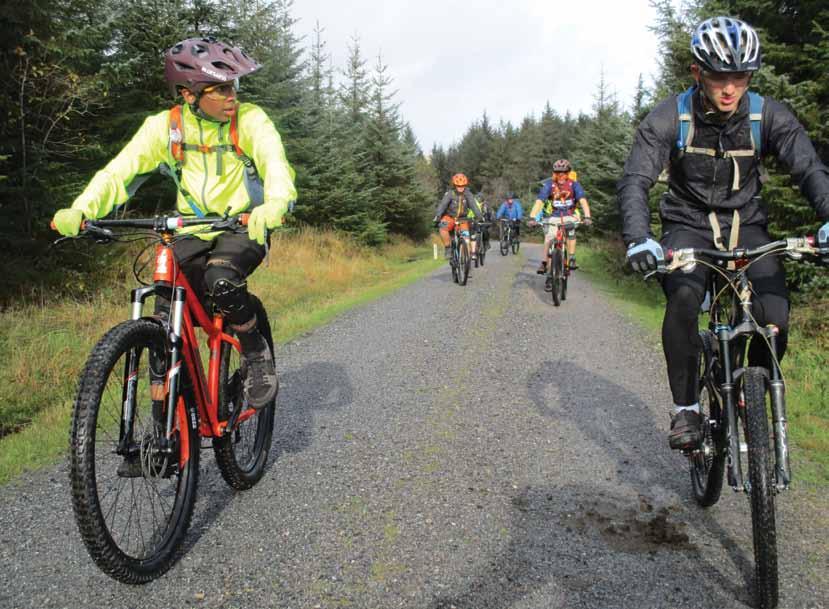
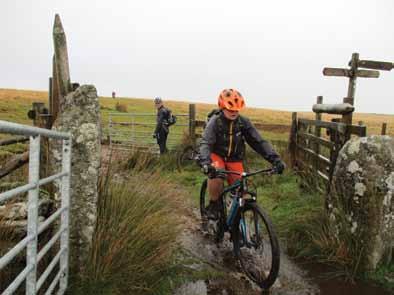
Partnerships
The Partnerships programme has again been an intrinsic element of the school’s co-curricular offer to our pupils. It has been highly rewarding to see our students develop their leadership and mentoring skills through their work with children in the local community. Furthermore, many local students have benefited from both the facilities and teaching expertise that KES has to offer.
Regular opportunities have continued through the Reading Schemes with Springhill and Highfield Primary Schools led by Mrs Hardwick and Mrs Gunton respectively. The young children are very grateful to our students for their time in developing literacy skills as well as a passion for reading. The Springhill scheme continues to be immensely popular with our Upper School and Sixth Form pupils. It is a testament to the appeal of the activity, that many of our students continue with the scheme year after year. At Highfield, our students work specifically with students in Years 5 and 6 who find reading challenging and their intervention helps to make a difference as these children prepare to make the transition to secondary school.
This year’s Art Club was a joint endeavour, with students from Springhill and Wordsworth Primary schools being taught together by Mrs Moxon and her ever-willing team of volunteers. The primary students were given the chance to create their own Grecian urn, which they decorated with pictorial representations of their favourite leisure activities. Third year students helped to lead the Highfield Philosophy Shop activity, in which Year 6 students are engaged in developing their critical thinking skills whilst learning about key philosophical questions. Both sets of students participated enthusiastically and especially when the opportunity to win the class teddy bear arose!
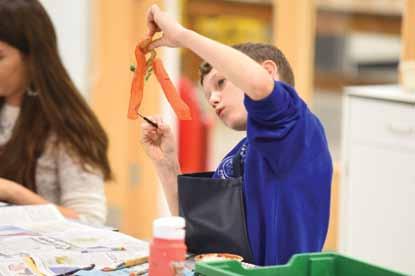
It has been a pleasure to see so many of the young children in our local community enraptured by our Science programme. The KES Science Department has run three after-school clubs for children from Springhill and Wordsworth schools. The focus of these clubs is to provide the younger children with the opportunity to use our laboratory facilities and learn about the wonders of science through a range of practical experiments. These have involved exploding hydrogen balloons, food being burnt, making slides of an onion and identifying organs through a dissection of a rat!
The Creative Arts are always at the forefront of our co-curricular offer and our partner schools were able to benefit from this in a number of ways throughout the school year. In November, students from Hollybrook Primary attended a vivid matinée performance of the school’s acclaimed musical ‘West Side Story’. Furthermore, students from Hollybrook and Wordsworth came to KES for a visit from the London Mozart Players. During the day, the children were coached and mentored by professional musicians as well as having the opportunity to hear them perform and ask questions. The day culminated in a joint performance with 120 musicians on stage who all contributed to an extremely professional and memorable concert.
In summary, it has been another very busy year for Partnership activities at King Edward’s and I am immensely grateful to all of the staff and students for their time and help in planning and delivering such a comprehensive programme of compelling experiences for our partner schools.
Mr Sinclair
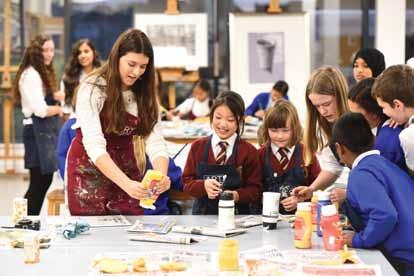
PDSA Partnership
This academic year saw the start of a new partnership with Portsmouth Down Syndrome Association. We have grouped together fourteen of our students with the teen group from PDSA. The idea from the outset was to create a friendship group where the students can take part in a number of activities throughout the year, which then culminates in an activity week hosted by our students. Activities were to include dancing, art, sports, a trip to Marwell Zoological Park, swimming and a visit to Paultons Park.
This social initiative is so important as it enables inclusion on a level that is often just not possible. It also gives our students the chance to give back to the local community and develop valuable skills in areas they may not have thought about previously.
To start us off, our students received twilight training from the PDSA training team on ‘how to be a good friend to someone who happens to have Down syndrome’. It covered many aspects including the use of language and the value of inclusion. We had a fantastic turnout for this and many of the KES staff joined us.
For our first meet, the students teamed up with the teen group at HMW Nelson, for an evening of dancing and socialising at the annual PDSA Halloween party – there was certainly many scary costumes on show during the evening! Our students were incredibly polite and engaging, and the evening was a huge success. Our second evening took place at The Pyramids Centre in Portsmouth – we were lucky enough to have the whole swimming pool to ourselves; including use of all of the slides and wave machine! The group absolutely loved it and filled their tummies with burgers and chips when they finished! The last time we were able to meet up, we scaled new heights at Red Spider Bouldering Centre! It was lovely to see how natural our students all are with the PDSA teens and how much happiness they have brought to others - a
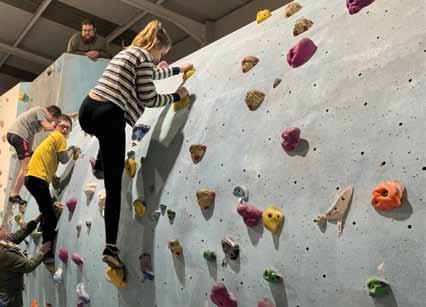
real testament to themselves and the school. Everyone rose to the challenge and scaled the climbs.
It has been wonderful to see friendships flourishing this year and everyone enjoying the events. Unfortunately, we haven’t been able to do all we have wanted to do due to the coronavirus pandemic, and our summer schedule is looking extremely unlikely to run as planned. Our students had also planned a black tie dinner-dance to raise funds for the project – this took an immense amount of planning but something that we will be able to do in the future. Even though the schedule has been severely disrupted, we are still thankful for what we were able to achieve and look forward to our future relationship.
Mr Miller
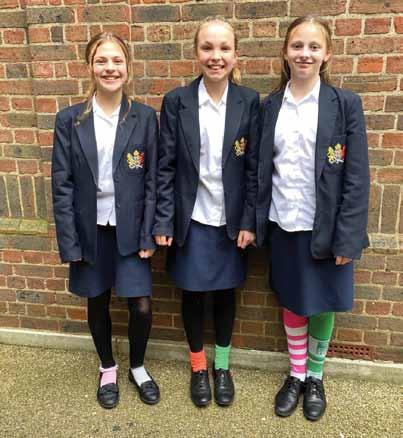
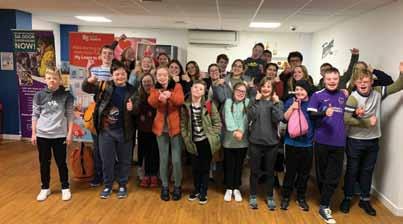
Photography Group
The KES Photography Group has been very active since the first week back in September and, indeed, over the summer holiday. There is always a photograph to be taken or made. The members, comprised of those using just their ipads or phones, right through to those with full SLR kit, have enjoyed assignments, competitions and learning new skills.
New for this year was a category in our first show for pictures taken over the summer break and this was a popular move. Over the autumn term we also made good use of our now very extensive stock of

equipment. Light painting tools, smoke machines and mini studios being amongst the popular items to bring out from the cupboard.
While the spring term was cut short, photographers could of course continue to take photos, with the webpage and Google classroom offering the facility to share pictures and showcase new ideas.
The group welcomes all members of the school with an enthusiasm to take pictures.
Mr Robinson
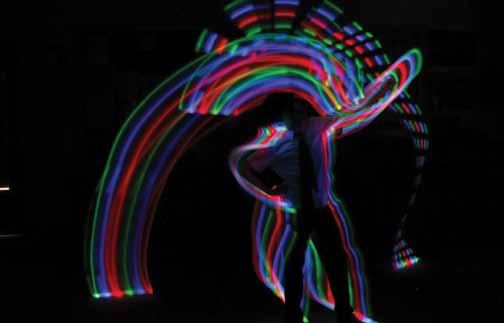
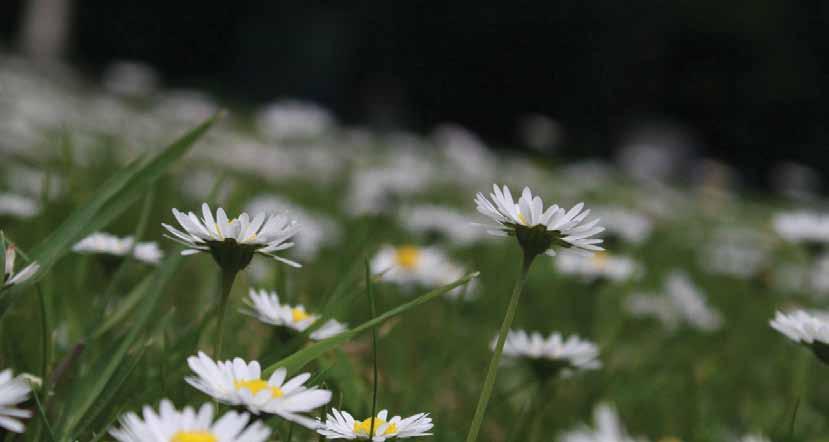
Playwriting Group
This year, eleven of our most talented writers from the Fourth Year and Sixth Form took part in the National Theatre’s New Views play writing scheme. As part of the programme, the students attended a series of workshops designed by the National Theatre, including one workshop run by a professional writer, Christopher Hill. The group then wrote their own 30-minute plays, receiving feedback from Christopher in one-on-one interviews during the drafting process. Sadly, the national competition was then cancelled this year due to coronavirus; however, the students were Since September, Politics Society has hosted engaging talks on topics ranging from the ethics of drone warfare to the motives of the yellow vests movement in France, culminating in an energetic mock general election. The year began with an absorbing and widelyattended talk from Professor Christian Enemark on his pioneering work as the principal investigator for Southampton University’s DRONETHICS research team. Professor Enemark’s talk sparked a lively discussion about the morality of ‘drone violence’, a contemporary form of violence with the potential to disrupt established frameworks for war and law enforcement. Professor Enemark’s visit was followed by an insightful talk from Kate Wiseman on the controversial ‘gilets jaunes’ (yellow vests) protest movement for economic justice in France. Kate explained how rising fuel prices and recent tax reforms had provoked widespread violence and civil disobedience by protestors wearing yellow hi-visibility vests. The highlight for Politics Society this year, was the encouraged to finish writing their plays regardless and produced some innovative and engaging work. Particular congratulations go to Emma Appleby, Eleanor Dunlop, India Griffiths, Jiya Julka, Sam Kendall and Katherine Roberts, who all completed their plays and will be automatically eligible to enter these into
Mrs Arnold
Politics Society
next year’s competition. school’s mock general election in December. Following a dynamic debate between student representatives from six parties, drawing in an audience of over 250 in the Dobson Theatre, 831 students headed to the polls. The Liberal Democrats (represented by Charles Thomas) triumphed with 45% of available seats and 36% of the total vote. The Conservative Party was placed a distant second (23% seats, 24% votes) and the Green Party finished in third place (17% of seats, 16% votes). However, owing to the Liberal Democrats’ failure to secure a majority, a Lib Dem–Green coalition was recognised as the most likely outcome.
Unfortunately, an abrupt end to the prorogation of Parliament and the risk posed by coronavirus, thwarted two attempts to host Caroline Nokes MP for a highly-anticipated Q&A session. Nevertheless, Politics Society thrived this year, inspired by a number of high-profile political events
Ed Sheppard

Psychology Society
Throughout this academic year, we have seen various KES students cover a wide range of topics, both using the A Level specification as a basis for further research, as well as going beyond to investigate other intriguing areas of psychology to share. Students are encouraged to share the findings from their own observations and research projects conducted in school. This provides them with the ability to practise their presentation skills, whilst simultaneously using what they have learnt in class. Providing students with opportunities such as these continues to be worthwhile and effective, and help them with skills that can be called upon at any time. Not only does Psychology Society offer the chance to learn about different aspects of psychology, it also incorporates information from other subjects such as economics, history and geography, resulting in a society open to all A Level students.
We have also been fortunate enough to have visits from guest speakers ranging from an educational psychologist to a climate scientist. Having external speakers share their knowledge with us is a privilege which we all thoroughly enjoy and learn a lot from. Dr Emma Palmer-Cooper (Southampton University) Once again Clive Jones (Secretary Southampton Rifles Club) and Phil Chapman-Sheath (Team GB Shooter and KES Parent) have been fantastic at giving pupils at KES an opportunity at this sporting discipline. Shooting has been an Olympic sport since the first modern games in 1896. Shooting is a tense sport that requires immense reserves of skill, concentration and nerve. Strength, stamina, hand-eye coordination and fine motor skills are all improved by taking part. We train once a month in the bunker for two hours of an evening - though some pupils have joined the club came to talk to us about schizophrenia and unusual sensory experiences which tied in perfectly with our learning about schizophrenia in class. It was interesting to see how the techniques to help people with this condition were applied in a real life setting. It also helped to further educate us on the lives of those with schizophrenia and how important it is to have a supportive and understanding family. Another visit was from Harriet Nicholson who gave a talk on the psychology of online marketing. Many students were surprised to find the extent of how much psychology was used in marketing, understanding that you have to get inside the minds of the consumers and think about what would make them want to buy the product. These examples demonstrate the adaptability of the subject..
Psychology Society has been a great experience – one in which we have been able to explore all areas of psychology and how it relates to our lives.
Rifle Shooting Club
Ella-Jay Mallong and Amy Ritchie

and practise more often. There are several members who have made excellent progress and are showing talent. Sadly, we were in the midst of organising a competition against Winchester College when the COVID-19 virus struck and will also not be making it up to Bisley Range again this summer where, last year, pupils were hosted by the North London Rifles Club, who put on a lunch and prizes.
Mr Mapstone
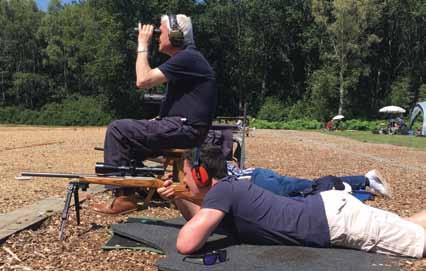
Robotics Club
This year’s Upper Sixth team was not only highly skilled and able, but many members had also known each other since the First Year. As always, we attended the ‘Kickstart’ event at the University of Southampton on a Saturday for the day. Fifty teams are involved across the nation. This year’s core team worked through many a lunchtime and, at times, after school, avoiding the cleaner! We even came in on a couple of Saturdays and the progress was superb. The team was looking like having a robot that could win the competition this year, thanks to clever coding integrated with solid hardware. It was uplifting for me to see them work so well as a team, each contributing based on their strengths, each coming together to share ideas and strategies and the team’s social media channels were proud to broadcast their achievements. With diligence, they versioned their code on Github and communicated together via Discord. Then the virus hit and work all but stopped. The Lower Sixth will carry forward this robot to next year’s competition.
Mr Mapstone
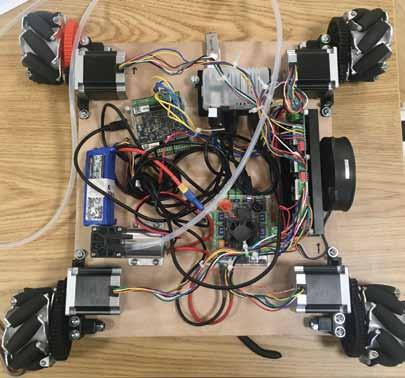
Sailing Club
During the first half of the autumn term KES Sailing Club enjoyed getting out on the water at Southampton Water Activity Centre each Sunday. Mrs Sheridan and Mr Barker, with help from Dr Waymark and the SWAC instructors, provided a variety of activities for the students including races and short cruises up or down river.
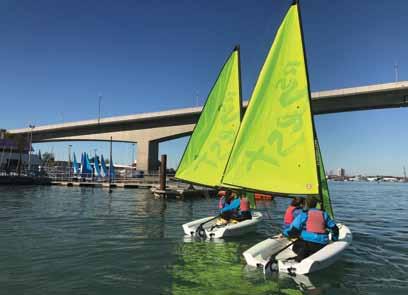
During the autumn and spring terms our introduction to power boating (a Foundation Studies option) remained very popular with the Upper Sixth, who had the opportunity to learn how to drive a RIB and also cover the theory for Power Boat Level 2.
As the weather was beginning to improve again after the winter, beginner and intermediate sailing courses, as well as a multi-activities water sports week, were planned for the Easter holidays. Unfortunately, these had to be cancelled due to the coronavirus lockdown. The planned summer sailing programme has also suffered the same fate and our sailors are eagerly awaiting a return to water based activities.
During the February half-term, two of our KES Fifth Years gained their dinghy instructor certificates and are looking forward to being able to begin teaching sailing as soon as restrictions are lifted.
Sanskrit Society
Sanskrit Society continued this year with a small group of Fifth Year classicists and linguists.
Having mastered the Sanskrit characters and transliteration and learnt the common words, we have continued to work at different rates, with some of us studying and translating the stories, whilst others have continued ploughing through the workbook. In between the stories, we learnt about School Council elections took place in October with the new council in place just after October half-term. Meetings were held every fortnight until the year was sadly truncated by the coronavirus pandemic. However, during that time the council had discussed a number of issues. Their first meeting of the year, as is the custom, provided a chance to meet some of the school governors over lunch and to understand the importance of the council’s input and also the role of a governor. In other meetings they have met with the catering managers to discuss all aspects of the provision with particularly useful feedback being given with regards to packed lunches and menu options. They have met with Mr Parker to understand how he saw the role of the school council and this also gave him a chance to find out if there were any key issues that he needed to be aware of; some of which have been discussed further. This year’s Wednesday lunchtimes have continued to be devoted to the Spanish Bilingual Club. Five dedicated Fourth Year students have assiduously attended the meetings and participated in a more serious take on previous year’s club meetings with the aim of sitting their Spanish IGCSE early. In the autumn term, there was time for some fun and games, even our own version of an escape room, created by Marta, one of our language assistants, but most of the time we have endeavoured to master spelling, accents, complex grammar rules and exam technique. As semi native speakers, the students have learned the language by ear and use it intuitively so they have had to work hard grammar and sentence structure, such as noun declensions, and were introduced to new cases such as ‘the locative’ and ‘the instrumental’, as well as beginning to learn the language and its common uses. The stories have also taught us about ancient Indian mythology such as the stories about Rama
Sophia Skenderis
School Council
and Sita. The council was introduced to Mr Baker (Head of Operations) who explained, in particular, what developments are planned for the near future and they also managed to ask the inevitable questions about the bus service!
The final meeting before the lockdown gave the council a chance to meet with Miss Smith and discuss the new school uniform, all of which gave valuable feedback as we move into the next stage of uniform planning. Since the whole school moved to a remote provision, the council have also given feedback on the use of Zoom for teaching and cocurricular activities which was useful in helping the teaching staff refine their use of the remote systems
Mr Kent
Spanish Bilingual Club
to provide high quality learning for the students. to understand the grammar they regularly use without even giving it a second thought. For me, as a language teacher, the experience has been very interesting and with students coming from very different backgrounds and Hispanic communities, it is fair to say that I have also learned a lot from them.
Mrs Ladislao
Summer Camp
This has been another hugely successful year for Summer Camp. We have continued to enjoy fortnightly visits to NoLimits, with the Upper Sixth interacting with familiar faces and the Lower Sixth getting to know the children associated with the programme. The first fundraising event was the First Year Disco – incredibly well attended and great fun for all involved. There was Christmassy music (thanks to Gus Berry), entertaining games and snacks galore! It was fantastic to see the whole team working so well together to put on a great event for the First Years. We then had the hugely popular ‘Would I Lie to You?’ (big thanks to Henry Gwilliam for hosting) and Mr Collinson and Mrs Lane for being such good sports. January was a very busy month; Battle of the Bands, with Edmund Bissett and Gus Berry hosting, and the Young Carers’ Awareness Day, for which we sold cookies in the Atrium with music to help attract students to get involved. We then sold Krispy Kreme doughnuts as has become custom in Summer Camp fundraising. Unfortunately, due to lockdown and school closures, the remainder of our fundraising calendar was halted.
Regardless of whether the Summer Camp goes ahead, the money will be put to good use in the NoLimits programme. My warmest thanks go to the entire Summer Camp team – they are truly an inspirational group of young people! Miss Downing
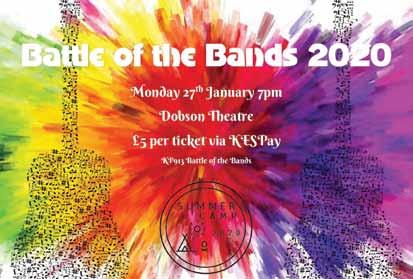
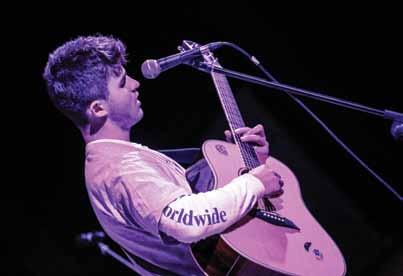
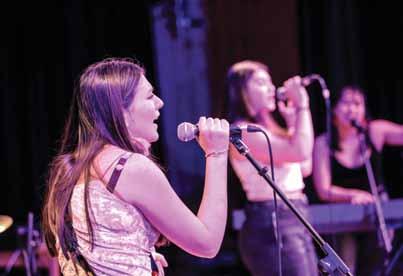
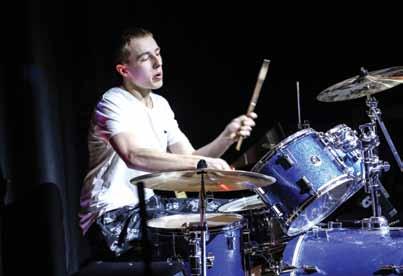
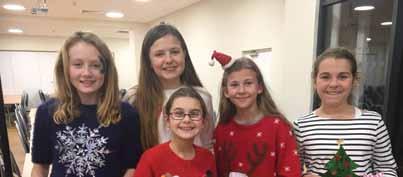
The Lone Pine Adventure (1986-2021) A 2020 Retrospective
The original Lone Pine Club was formed in 1943 and ran through until 1978. It was founded beneath a sentinel pine tree beneath the Long Mynd in Shropshire. The most important rule was “to be true to each other whatever happens always”. In 1986 the KES version came into being, first as the Classical Society, and latterly as the Cactus and Scamp clubs. Adventure is the key, and there have been many of those over the years. The longer trips involved using youth hostels and camping, and in recent years the wonderful facility at Lovaton has come into its own. There have also been shorter day trips, taking place during activity afternoons and through the Endeavour programme. Extracts from student diaries accompany each trip, in a convenient rather than geographical order. The illustrations are originals.
The Classical Society 1986 Cotswolds
“We went to look at an invisible bridge at Bourtonon-the-Water. No sign of it anywhere.”
1987 Hadrian’s Wall
“The route over the Hardknott Pass proved too much for the aging minibus of the day. All gear and all students had to be offloaded and the vehicle pushed up the steep incline. We gained some insight into why the Roman legionaries cursed postings to their most northerly province of Britain.”
1988 Welsh Marches
“We walked along a route on which we encountered sheep, cows and other more unpleasant things.”
1989 Devon and Cornwall
“In the evening we went to Tintagel Common where we played football. It was a bit difficult because it was dark, but the score ended up 3-3.”
1990 Provence
“In the Camargue we were told to draw one of the famous white animals. The result, however, was not very good because the horse I was drawing would not stay still.”
1991 Jersey
“When Gareth Ditchley, in a suave, sophisticated and confident manner, asked the cafe owner for a typically local drink, he was given cold milk. His reputation as the hard man of adventure was fortunately preserved because his beverage came in a dirty glass.”
1998 Roman Paris: Lutetia
“We went to the amphitheatre in the Latin Quarter. This was an unusual Roman ruin as it is in such a good condition.”
2009 Lovaton: The Pillar of Democracy
“We set off as soon as the sixty four slices of bread had been turned into sandwiches. Magic!” plus trips to Arundel, Cambridge, Dover, Exeter, Isle of Wight and Silchester...
Cactus Club
2016 Lovaton: The Eden Project “The Sunday morning raft race with small cacti sellotaped into Kellogg’s Variety boxes will not be forgotten easily. The location was Grimspound, following the stream down to the road. We had to negotiate craft stuck in reeds and runners. It happened to be the day of the Dartmoor 10k. Small children with sticks weaving in and out of fast moving adults on a slippery incline to be savoured in retrospect.”
2018 Lovaton: The Cactus Shop
“I have never seen so many cacti under one roof before. Not even does Gary Barlow’s London apartment have so many.”
2021 Lovaton: The Falmouth Adventure
“Mycroft Holmes: ‘What do we say about coincidences? First snow, then Covid-19. That is twice this trip has been postponed.’ Sherlock Holmes: ‘The universe is rarely so lazy.’” plus trips to Kew and Wisley.
SCAMP CLUB
2012 Lovaton: Childe’s Tomb
“Having the group picture taken at a place where, so the story goes, a man in vain had used his dead horse as a sleeping bag in a storm was strangely piquant.”
2013 Lovaton: Hound of the Baskervilles Part 1
“We read Chapter 14 of ‘The Hound’ out at Nun’s Cross Farm with the wind howling across the moor. We read spontaneously until we reached the key word which we shouted in unison into the eye of the storm: PHOSPHOROUS. Very therapeutic.”
2014 Lovaton: Silver Blaze
horses need a lot of bandages and bleed profusely - and Ben set to work to staunch the flow to get the horse to safety. Ben was somewhat bloodied, but the horse was saved.”
2015 Lovaton: In Search of Sherlock Holmes
“Only a small part of the cathedral was open because the Open University graduation ceremony was taking place. We mingled with the graduates and their families afterwards and had our pictures taken, usually in the background.”
2017 Lovaton: Hound of the Baskervilles Part 2
“Soon we were singing the School Hymn, first verse only (we hummed the rest), as we drove into Kellett Road.”
plus trips to Bletchley Park What a fantastic season! The King Edward’s team (Raaghav, Charlie, Freddie and Oscar) were on fire! A number of teams withdrew at the last minute so there were only 5 matches to be played in the Southampton Schools’ Under 13 Table Tennis League. First up was Bitterne Park B and a comprehensive 8-0 victory was negotiated. Then came the strongest opponents: Bitterne Park A. At the half way stage the KES team was 3-1 ahead and anticipating another victory but with a very strong fightback and the final set, which would have given the KES team victory, incredibly tight but eventually lost, the KES team had to settle for a 4-4 draw. They did hold an 11-10 lead on sets won which might prove crucial. Knowing that there was very little between these two teams, the KES team went all out to win their remaining matches against St Mary’s Independent School, the Mountbatten School and St George Catholic College. There was great sportsmanship but little quarter given as the team gained three 8-0 victories to take the title for the first time in about 10 years. What will this achievement lead to in the future? Time will tell! There were 4 individual tournaments. Raaghav entered the A competition, Charlie the B, Freddie the C and Oscar the D and all performed to a very high standard with Raaghav, Charlie and Oscar winning their categories while Freddie was placed third. This We had access to the school archives and club diaries in putting together this report. Cactus Club meets on Mondays at 1330 in CL2. Scamp Club meets on Tuesdays at the same time and in the same location. Adventures take place regularly. Max Bouras and Jamie McManus Presidents of The Cactus Club
Table Tennis Club
and Scamp Club was an excellent achievement.
In the annual First Year Inter-Form competition the 1/2 team, (Arthur, Ed and Will) eventually defeated 1/3 (Ethan, Luke and Tanush) in the final. In the Third/ Fourth playoff match 1/6 edged out 1/5 with a little help from 1/2! Raaghav was the dominant Lower School individual performer and if he can maintain his excellent progress, he should go far in the sport. Congratulations to everyone who took part and hopefully next year will be just as exciting. Mr Singleton
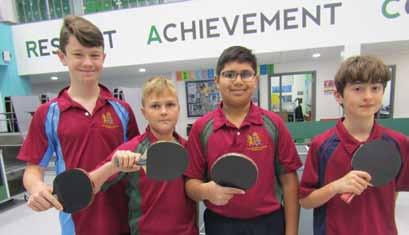
Wargaming Club
Wargaming has enjoyed another busy year with a healthy bunch of new recruits in the First Year to replace the veterans that left with last year’s Upper Sixth. In common with recent years, the “war” in wargaming has been honoured more in the breach and most games have had a different, but still strategic, theme. “Raiders of the North Sea” proved a popular addition to the club’s cupboard and the new “Cthulhu: Death may die” continued the tradition of Lovecraft inspired games being impossibly difficult to win but a lot of, tentacle inspired, fun to lose. Many thanks to all that came along and played with such good humour and sportsmanship but an extra special mention in despatches to Upper Sixth student Will Atherton. Not only has Will been a stalwart of the club for many years but he has run a seemingly endless Pathfinder campaign all year and I know his enthusiasm and inclusive attitude will be much missed by us all.
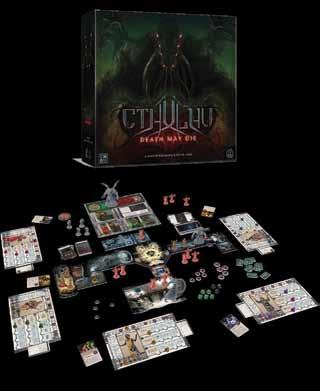
Dr Gamblin





